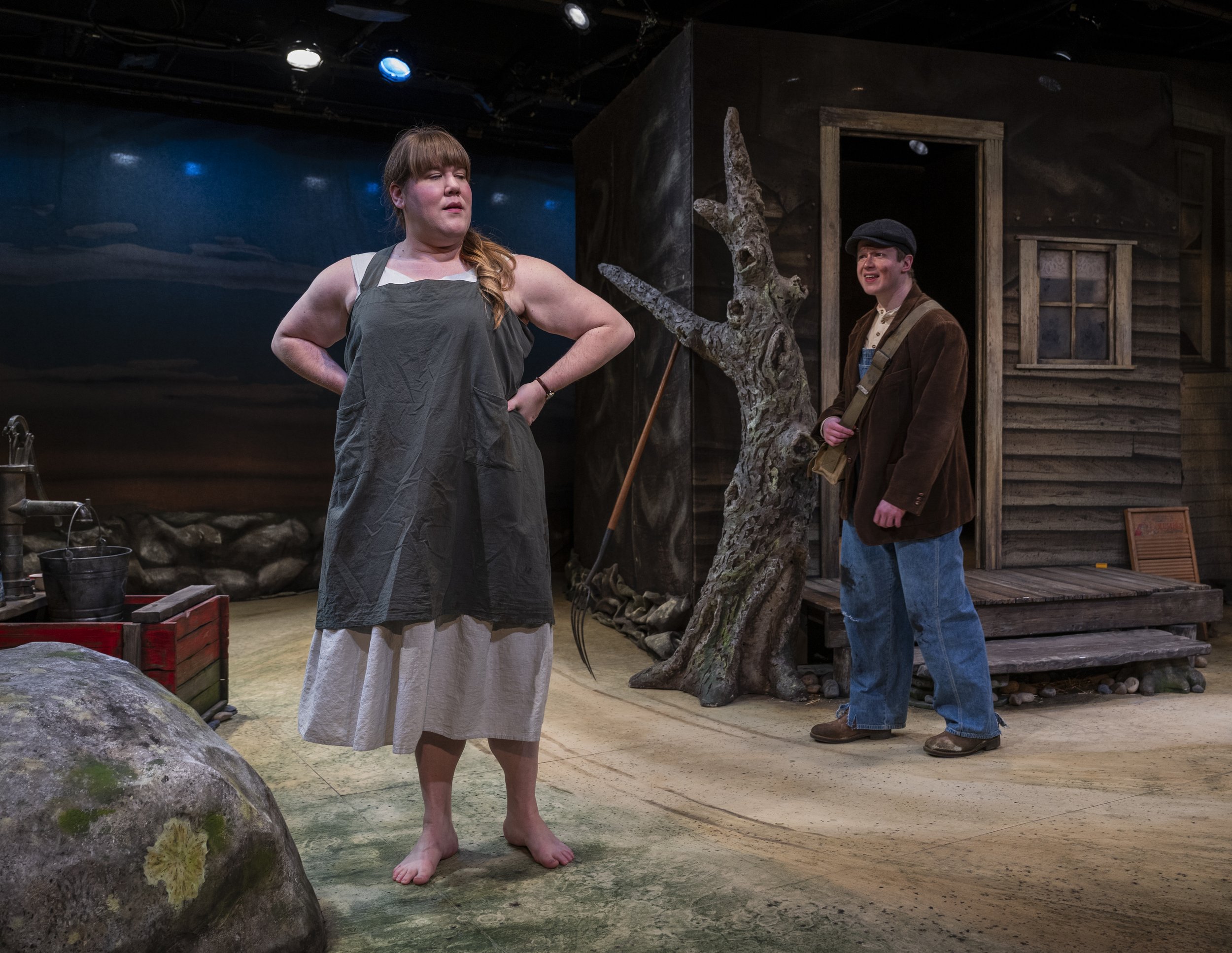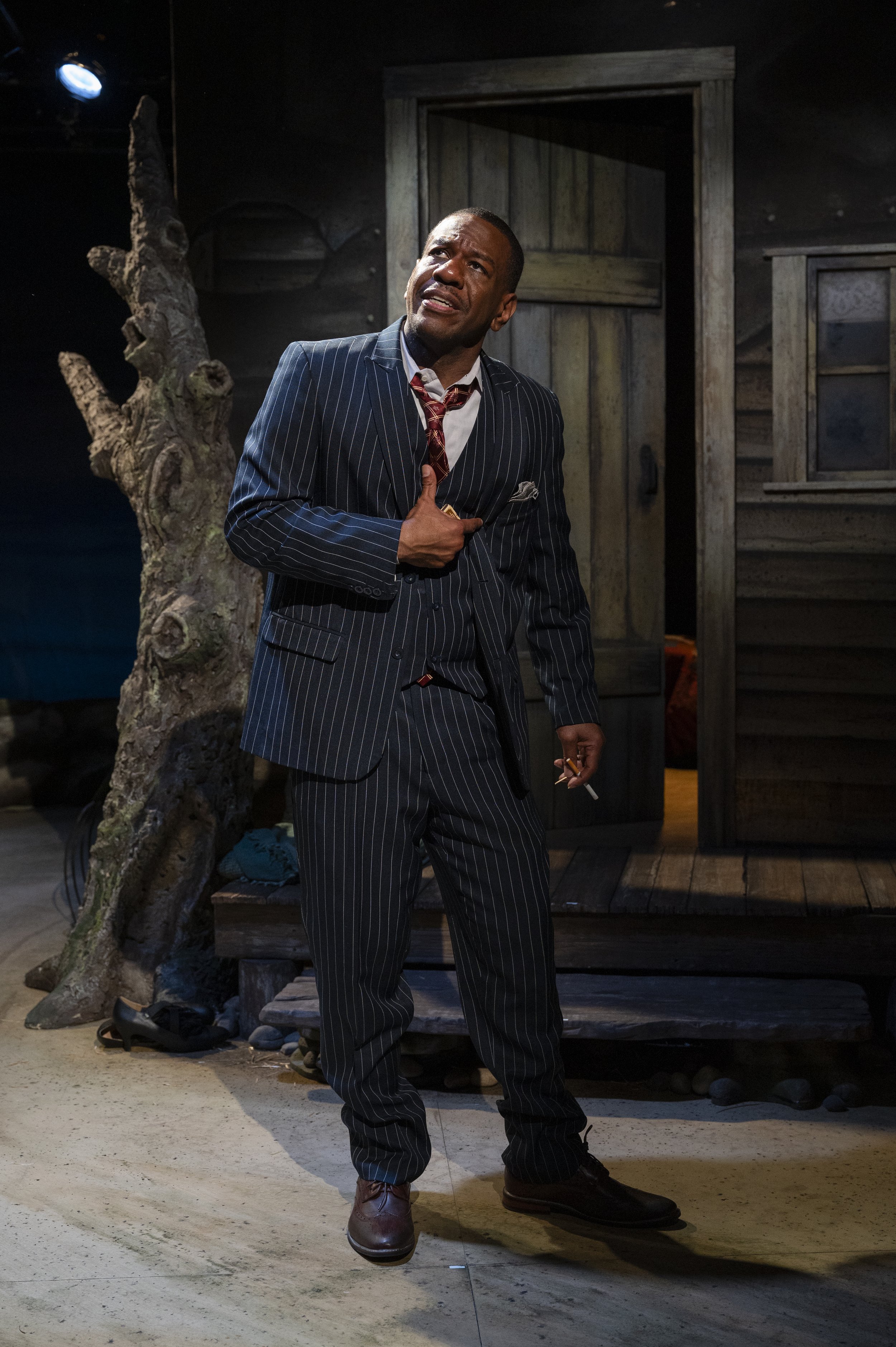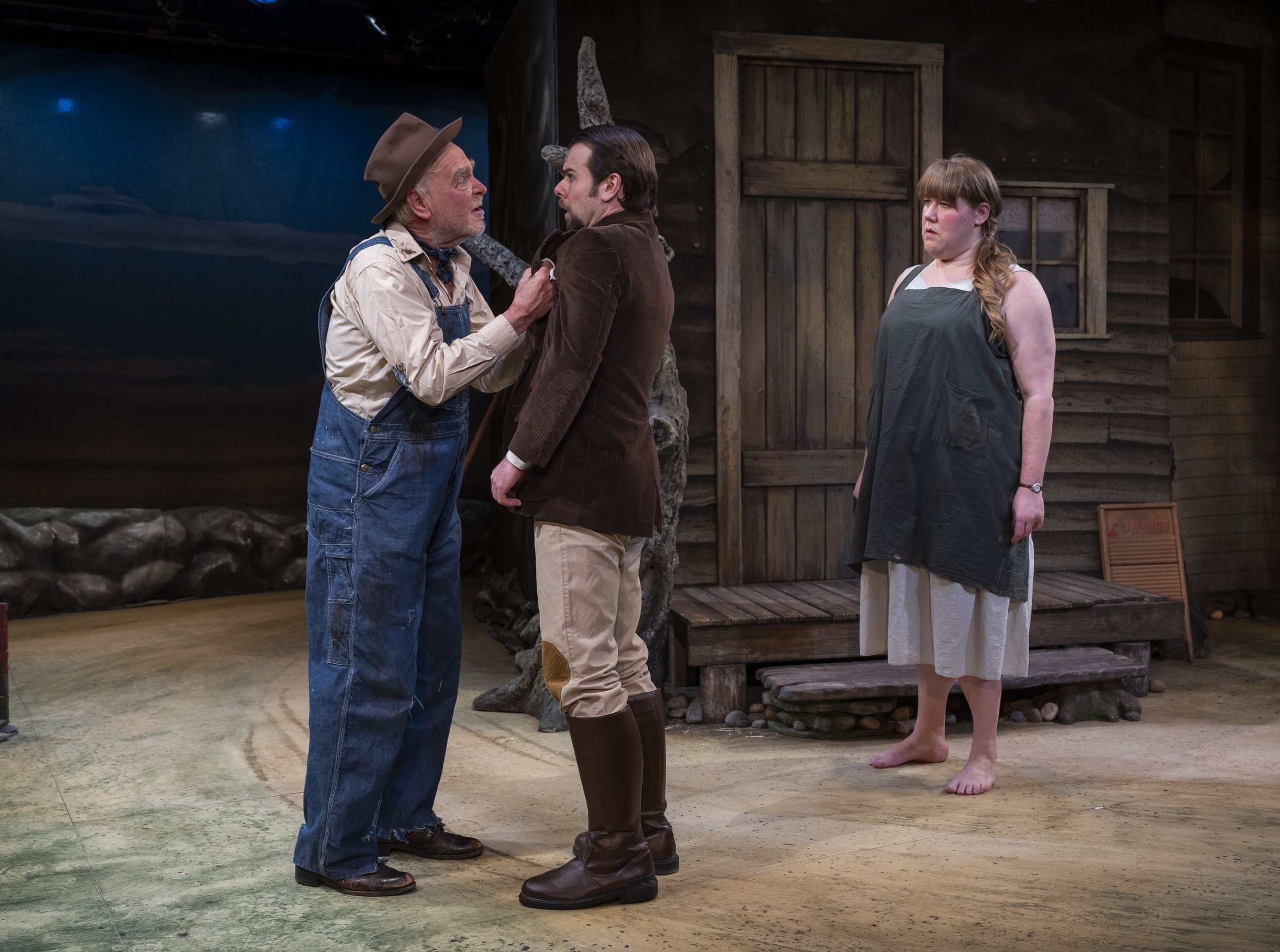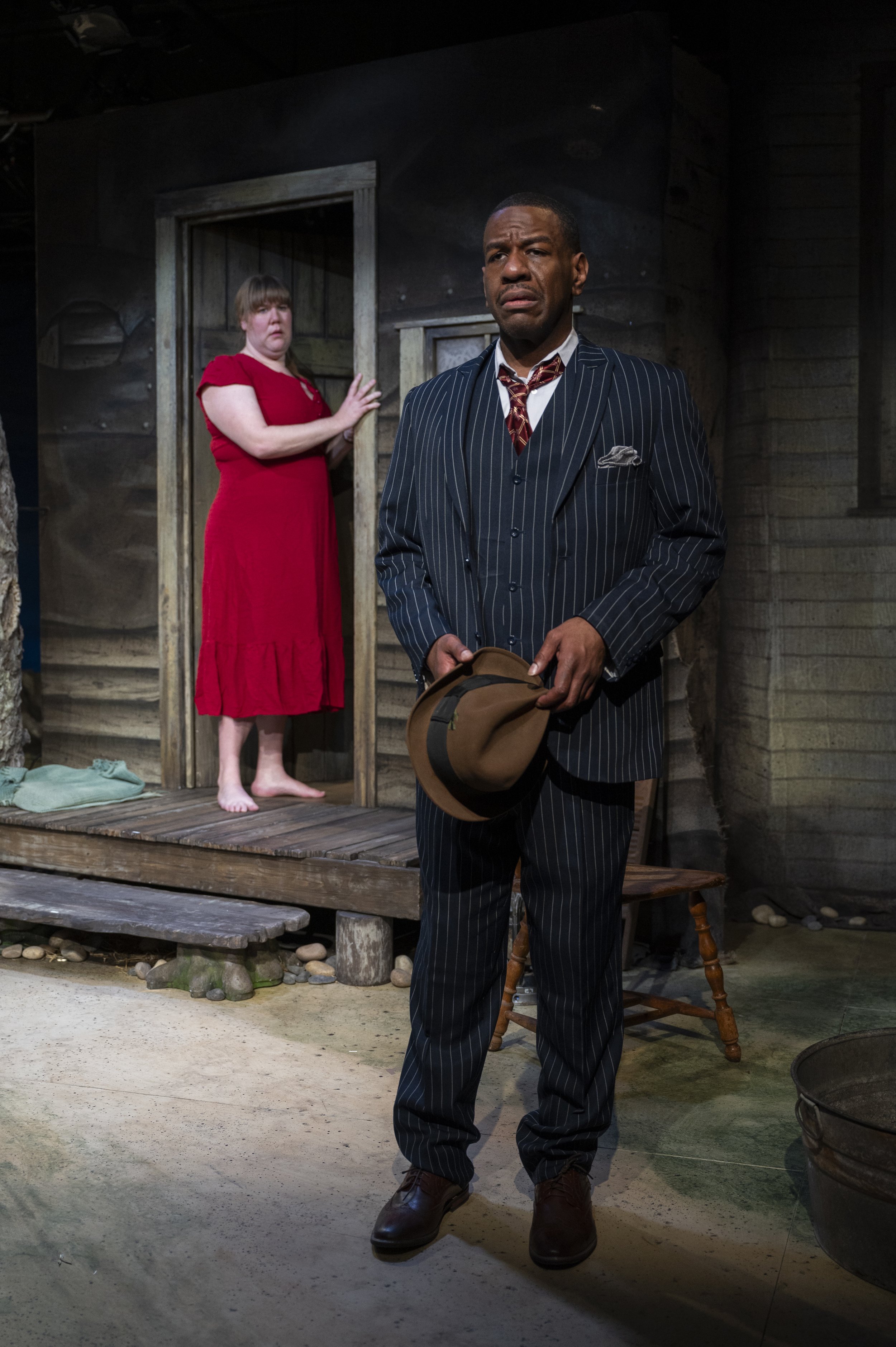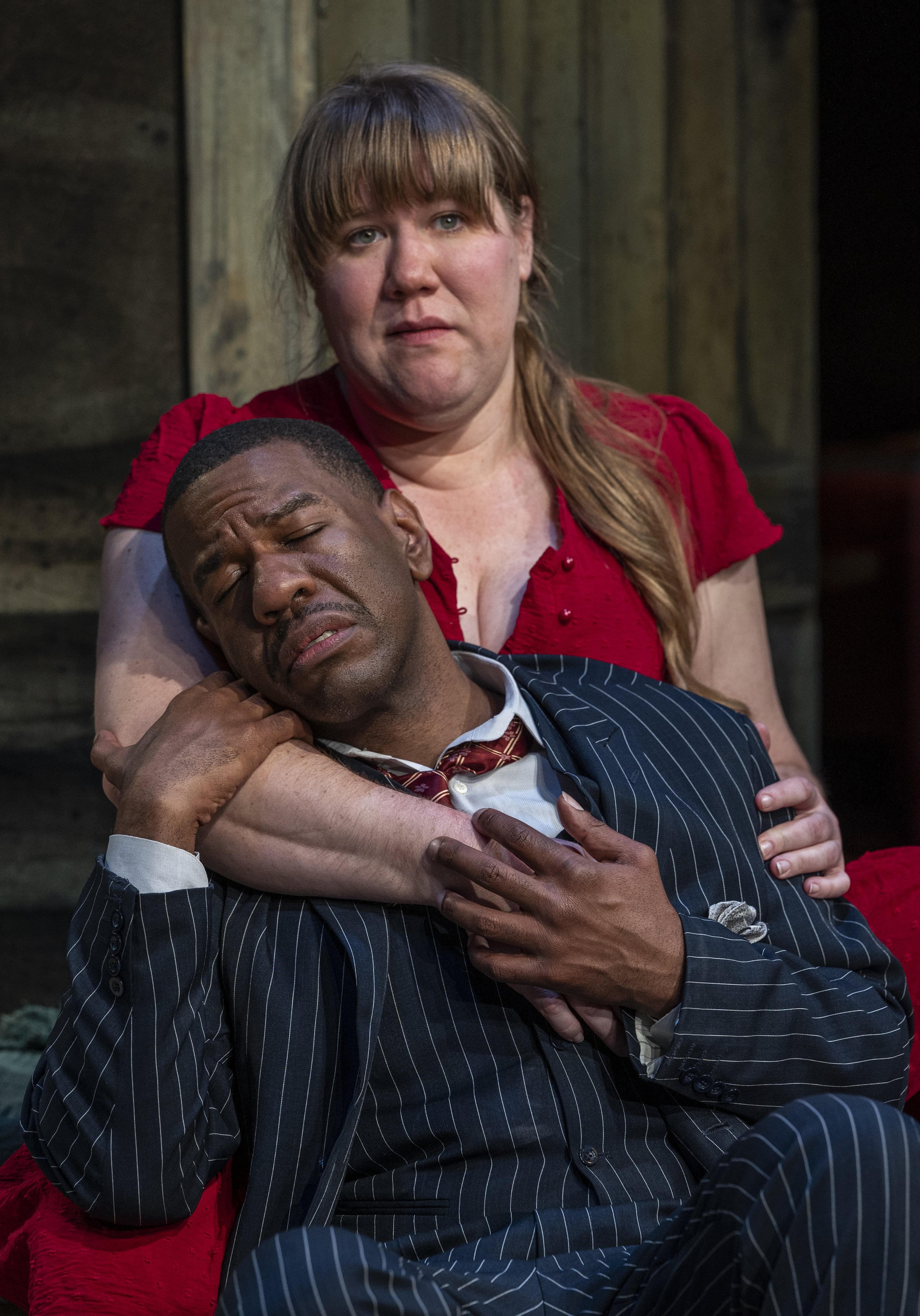A Moon for the Misbegotten | Snap Shot Press Release
/“I don’t know what to think!”
It’s not a phrase I utter often [nor do I appreciate sentiments of equivocalness as a posture of perspective]. However, the phrase was the only thing that could come to my mind as the Sunday, January 21st, 2024 showing of Eugen O’Neill’s, A Moon for the Misbegotten, ended at the Milwaukee Chamber Theater.
In an effort to unpack my thoughts I had to confront my entry point into the play [the casting of La Shawn Banks as James Tyrone, Jr] and the thematic subtleties that would allow me to see past the rickety porch and vastness of “desolate Connecticut”.
All images provided by MCT shot by Micheal BrosilowThe intimate glimpse into the periphery of society as a note of unideal existence is something that this revival of A Moon for the Misbegotten does well. A father whose drunkenness drives his sons away [Phil Hogan played by James Pickering], a daughter who uses her sharp tongue to avoid the pain of her insecurities while picking up the slack for her patriarch [Josie Hogan played by Kelly Doherty], and the thorn of socioeconomics in its human form as T. Steadman Harder [played by Zach Thomas Woods] gripes about his fence and ice pond when his neighbors live in subpar conditions. But Mike Hogan [played by A.J. Magoon] escaping without confronting his father is something I wish O’Niell had the foresight to correct. It denotes the subservience of a woman in society, as a nurturer of those who don't deserve to be nurtured. As sure as she robbed her father to free her brother of his suffering she does not enact her own freedom.
[I hated that for her]
But that nuance of perspective coming from this 21st century feminist [YES I AM!] was minimal, noting that her love interest as a “foul” mouthed Irish woman was with a Black man. Now as plausible as it would have been for James Tyrone, Jr. to be an African American landowner and actor in the 1920’s, there would obviously be social scrutiny for Josie and James to be together no matter how many demons they both have collectively. Where the role was not originally written to cast a person of color, I applaud the selection because Bank’s portrayal was quite believable. His cityslicker slyness with overly emotional tendencies [it was giving an actor playing a person who is definitely an actor] was spot on. But I could only predict it would never work out. I could never really see even the alcoholc-ist of alcoholics encouraging their daughter to be with someone he knows could never maintain her publicly. Not even the ploy to get his money seemed reasonable because once they were seen together would that not be a social provision for violence in that time? It's rough because as a multiracial Black woman with Irish roots, I know how I got here [and it wasn't cute].
Similarly the whisky wagon never left the stage! The highs and lows of an alcoholic binge is always unsettling. The way Phil and James were throwing them back you couldn't be sure where their thoughts were coming from and if they had any control over their narcissistic behavior. And why should they when the bosom of Josie will be there waiting to care for them [Again, I hate that for her]? Even in her hope for something more with James, her agency was taken when he chastises her for saying she had been “around the way” with other men, and him so certain that it was fib [So men can do it but women can’t? Tuh! It’s given misogyny]. To then turn around and be all out of sorts for doing up a sex worker [repeatedly] on the train while bringing home is mothers dead body!?! If Mr. Tyrone was looking for sympathy, he could definitely look past me [If you like “city girls” just say that!] But again, as I analyzed what I had experienced take place on that stage, I could only imagine my father who suffered from alcoholism throughout his life and his womanizing tendencies. Could he have ever showed up to some ladies doorstep begging for comfort as an illusion of humility? Unfortunately, I will never know.
The highs and lows of James’ drunken lust for Josie, cloaked with his attempt to “maintain” her chastity was too much for me. Make up your mind sir! Push her away from you one more time and its borderline domestic violence. The way her belligerent father was trying to get her in the bed with his drinking buddy and landlord for a few coins is wild [Pickering made me despise Phil Hogan]. I mean here is a man with no shame whatsoever. And yikes Josie! Grow a backbone! That self-deprivation got her nowhere but loveless, sexless, and moneyless [forget a drama, that makes it a tragedy]. She talks down on herself, she lets everyone in her life take advantage of her, and she is stuck. Stuck on that porch looking for something that you can only find inside of yourself. The way Doherty invited torture to her existence in this role showed commitment. There was no ego to bear and no diva to deliver in the shell of a woman that was left of Josie at the end.
What does this say about humanity? What does this say about a society that still feels O’Neill’s narrative should be shared?
I think it says we are flawed. I think it is a reminder that comfort is a luxury many can not afford. It says we have more to learn about why we break and what breaks us. I also think it says that the theater is a place to feel discomfort as long as it interrogates the boundaries of societal niceties.
I did not love A Moon for the Misbegotten. But I respected it. It challenged my empathy and sometimes you need that from art.
Sometimes you need to know what uncertainty feels like.
Lexi S. Brunson
Editor-in-Chief /CW


